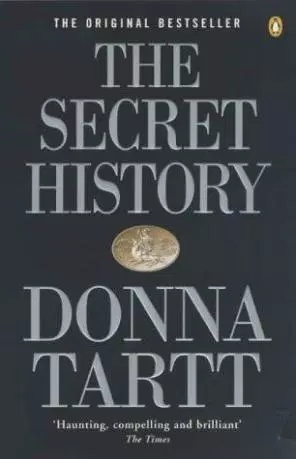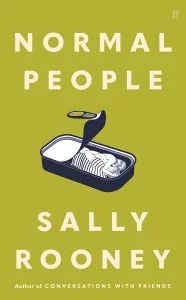The Secret History – Donna Tartt
“Does such a thing as ‘the fatal flaw’, that showy dark crack running down the middle of a life, exist outside of literature? I used to think it didn’t. Now I think it does.” This is how The Secret History opens. The narrator creates suspense for the story he is about to tell, “How to begin”, he contemplates. It is, however, incredibly well-crafted, using other elements of the classics in a story about the downfall of a group of classics students at a college in Vermont. We begin with what seems to be a prologue, and one that reveals the downfall: one of their fellow students (Bunny) is murdered. Knowing this makes the novel even more compelling – we know what happens, but must know why and how. Tartt is even cleverer than this first appears, however, since the murder is by no means the end of the story. And it is what comes after this that is most haunting – an exploration of human guilt and the way in which no one ever gets away with a crime. Bunny’s laughter “still haunts me”, the narrator later reveals.
The plot is essentially this: Classics students, obsessed with their subject, carry out an ancient ritual which leads to the accidental murder of an innocent man. The drive to cover this up, leads to the murder of their classmate.
Tartt’s skill as a writer is especially demonstrated in the way that the whole thing feels entirely believable and almost normal. Although most of the characters are unlikeable and their actions inexcusable, the reader is made to understand why they behave as they do. “A month or two before, I would have been appalled at the idea of any murder at all. But that Sunday afternoon, as I actually stood watching one, it seemed the easiest thing in the world”.
The death of Bunny itself is a shock but I do not believe that the reader is meant to feel much sympathy for Bunny, an obnoxious character, or for his family, who only seem to be superficially sad that he is gone.
There are many ‘secret histories’ in the novel and things left unspoken, even by the end. We see everything through our narrator, Richard’s eyes, “I am sorry, as well, to present such a sketchy and disappointing exegesis of what is in fact the central part of my story”, and the relationships between other characters often seem shadowy. Even Henry, the brains behind the whole operation is shrouded in mystery, his suicide never fully explained or discussed. He doesn’t even seem to feel guilt, presented almost as amoral. Tells Richard that the murder gave him a “surge of power and delight, of confidence, of control. That sudden sense of the richness of the world. Its infinite possibility”.
Unreliable narrators are common in literature, and Richard has been compared with Nick in The Great Gatsby. He is simultaneously appalled and enthralled by the people around him, drawn into their mess and responsibilities. He so desires to be liked and approved by them that he becomes involved in murder. He only seems to have one moment of doubt: “who were these people? How well did I know them? Could I trust any of them, really, when it came down to it?”
The narrator constantly analyses their actions – how and why they did what they did, “it wasn’t until I had helped kill a man that I realized how elusive and complex an act of murder can actually be”. This analysis is offset by the dramatic tension of the events of the novel itself and intensified through the use of pathetic fallacy, for example, when they plot how to kill Bunny “everything was still. Outside, the crickets shrieked with rhythmic, piercing monotony”. And once the deed is done, an unusual snowfall happens despite the fact that it is spring: “A November stillness was settling like a deadly oxymoron on the April landscape”.
It seems that the silence is the scariest of all, “I thought of Bunny’s dark room and of the ravine, miles away; of all those layers of silence on silence”. Richard goes to parties, takes drugs, they all drink and drink to fill the void, to banish the darkness, “unmedicated sleep was impossible.”
Definitely worth a read, I found The Secret History thoroughly gripping, but more than that, powerfully haunting beyond the final pages.

